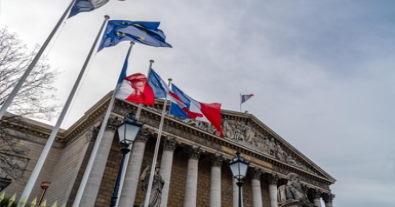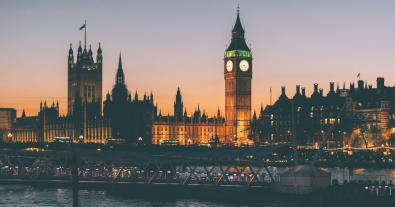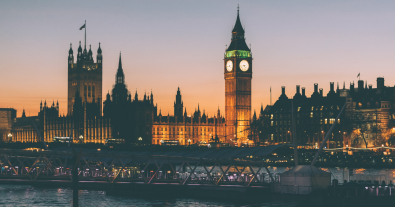The Clock Ticks on TikTok
President Biden signed legislation to push TikTok to divest from its Chinese-owned parent company ByteDance or face a ban in the United States.
- Congress has made it clear it views TikTok as a national security risk and this step is designed to mitigate that risk.
- TikTok CEO Shou Chew in a video on TikTok said, "Rest assured, we aren't going anywhere… We are confident and we will keep fighting for your rights in the courts."
- This law comes at a critical time for the United States. The election is less than seven months away and younger voters, a volatile voting bloc, may be keenly interested in the TikTok's future as will small business owners and other advocates.
- TikTok has vowed to take this battle to the courts, potentially stopping the clock on divestment… for now.
Congress Passed It. The United States Might Ban TikTok.
What You Need to Know:
- The TikTok ban passed as part of a larger foreign policy package. After some quick legislating, where the House of Representatives placed the TikTok bill inside the foreign aid bill, the Senate was forced to take up the provision sooner than they liked, guaranteeing the bill's passage.
- I'm Just a Bill: The legislation requires that ByteDance, the parent company of TikTok, divest itself from the company within nine months of the bill being signed into law (by Thursday, January 23, 2025).
- Lawmakers have been concerned that TikTok is a threat to national security. Congress is concerned that ByteDance, a China-based company, could endanger American-based users' security and data. TikTok says it doesn't store US information in China, but after a push notification from TikTok urged users to lobby against the ban, Congress moved quickly.
- Younger Americans are not happy. Young voters are frustrated that Congress is focusing on banning TikTok and not the myriad of issues impacting their daily lives. About a third of US adults under 30 regularly get news from TikTok. Around 60% of US adults under 30 say they use TikTok.
Now What?
The TikTok ban has been signed into law, but that doesn't mean the app will vanish on your phone today. Several questions remain:
- Will the law be enforceable? Naming ByteDance in the legislation is an odd turn of events in a nation that advocates for open internet and data regulation. ByteDance has promised to fight the legislation in court.
- TikTok spokesperson Alex Haurek said in a statement: "As we continue to challenge this unconstitutional ban, we will continue investing and innovating to ensure TikTok remains a space where Americans of all walks of life can safely come to share their experiences, find joy, and be inspired."
- We can expect challenges from TikTok, advocacy groups, and other interested parties that will stall the divesture timeline.
- India banned TikTok in 2020. After India banned the app, Facebook and Google grew. The same could happen in the US if divestiture occurs. President Trump has signaled he is opposed to the TikTok ban for this reason.
- How will China respond? China is already prioritizing Chinese apps in the app stores in China and has significant levers to pull that can harm US companies that see China as key for growth. China is already worried about stricter trade limits in the packaging and goods space but will not think twice about putting pressure elsewhere as the tech foreign policy battle heats up.
- This legislation will seep into the 2024 election. Former President Trump has claimed that President Biden is the reason for the TikTok ban, even though Former President Trump issued an executive order in 2020 to ban the app. President Biden has said he agrees with the privacy concerns surrounding the app. While the ban will not occur officially (barring any delays) until 2025, this will only anger younger voters already feeling apathy towards the system.










